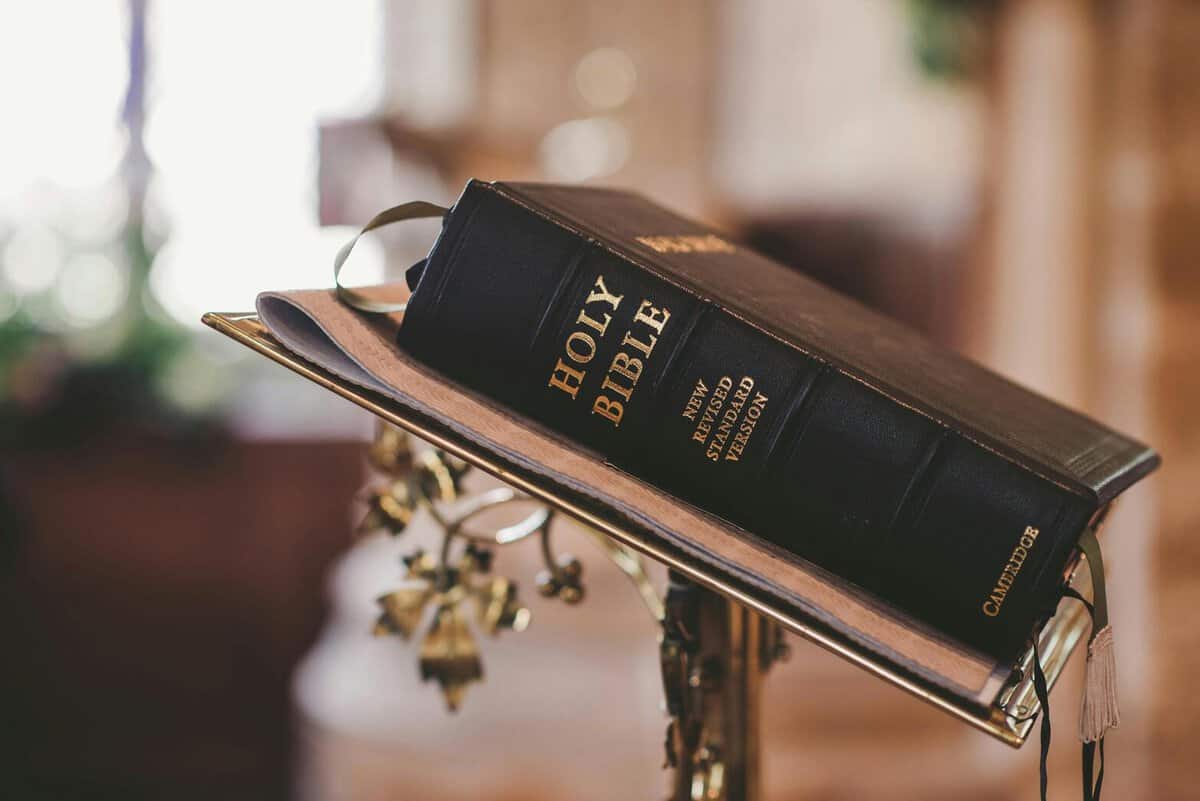If you’ve ever read the Old Testament of the Bible, then you know that the God is referred to by many names – and they aren’t just titles.
They’re packed with meaning and reveal so much about how God was perceived in the ancient times and how He interacted with His people.
Each of them shows a different aspect of His character, His power, love, and His promises.
Let’s dive into these 16 divine names and uncover what they really mean!
1. El Shaddai

El Shaddai is one of the most powerful names of God, often translated as “God Almighty.” It conveys His supreme strength and ability to do all things.
It suggests a nurturing, overflowing abundance, like a mountain of blessings or a protective presence.
When you hear El Shaddai, think of God as the all-sufficient, unstoppable force that can handle everything and anything.
It’s a reminder that no matter what we face, God is more than capable of providing, protecting, and fulfilling His promises.
2. El Elyon

El Elyon means “The Most High God,” emphasizing His supreme sovereignty over everything.
This name served to remind that God is perceived to be above すべて powers, nations, and rulers. He’s the ultimate authority in the universe.
When He’s called El Elyon, His unmatched greatness and His position as the ruler of all creation is acknowledged.
It’s a name that encourages us to put our trust in this force that’s above all else.
3. Adonai

Adonai translates to “Lord” or “Master,” and interestingly enough, the word shares the etymology with the Greek Adonis.
This name is a heartfelt title that expresses devotion and reverence.
When the Israelites used this name, they were surrendering to God’s lordship, trusting His leadership in every area of life.
Calling God Adonai is like saying “You’re in charge,” and recognizing that His plans are better than ours.
It’s a reminder that we don’t have to have everything under control, because He has. Essentially, it means trusting Him to bring peace and purpose.
4. Yahweh

Yahweh is considered the 個人的 そして the most sacred name of God in the Old Testament.
It’s derived from Hebrew verb “to be,” emphasizing God’s eternal existence. Yahweh means “I am,” or “The One Who Is,” signifying that God is always present, unchanging.
It reveals his self-sufficiency, and His commitment to His people.
When you see Yahweh, think of God who is always there, and always faithful to keep His promises.
5. Jehovah Nissi

Jehovah Nissi means “The Lord My Banner,” symbolizing victory and protection.
Banners used to represent armies and victory, so calling God Jehovah Nissi reminds us that He’s our ultimate triumph.
It’s like having a personal flag that shows we’re on His side, trusting in His power to lead us through battles – whether literal or spiritual.
This name encourages us to rely on God’s strength through tough times, knowing He fights for us and leads us to victory.
6. Jehovah-Raah

Jehovah-Raah, or “The Lord My Shepherd,” paints a beautiful picture of God’s caring, guiding nature.
Just like shepherd looks after his sheep, God watches over us, leads us to still waters, and protects us from harm.
It’s a comforting name that reminds us we are never alone or forgotten.
When life gets chaotic, calling his Jehovah-Raah brings peace, because we put our trust in one who guides us with love, patience and wisdom.
7. Jehovah Rapha

Jehovah Rapha means “The Lord That Heals,” and it’s all about God’s power to restore and mend what’s broken – whether physically, emotionally, or spiritually.
The name appears in the context of healing the Israelites’ wounds and illnesses, showing His compassionate nature.
When you call on Jehovah Rapha, you’re trusting that God is the ultimate healer who can bring wholeness to your brokenness.
It’s a reminder that no matter how tough things get, God’s healing love is always available.
8. Jehovah Shammah

Jehovah Shammah translates to “The Lord Is True,” emphasizing God’s constant presence.
In the midst of our struggle, fears, or loneliness, this name assures us that God is always with us – no matter where we are, or what we’re going through.
It’s like a comforting hug from heaven, reminding us we’re never truly alone.
When we call Him Jehovah Shammah, we acknowledge that His presence is our refuge, our source of strength, and our home in times of need.
9. Jehovah Tsidkenu

Jehovah Tsidkenu means “The Lord Our Righteousness,” highlighting that our right standing before God comes from Him alone.
It’s not about our own efforts – it’s about His perfect righteousness given to us through faith. This name points to Jesus, as the fulfillment of the promise.
When you think of Jehovah Tsidkenu, remember that it’s His righteousness, not our own, that saves us and keeps us secure in His love.
He’s our ultimate righteousness.
10. Jehovah Mekoddishkem

Jehovah Mekoddishkem, or “The Lord That Sanctifies You,” speaks of God’s ongoing work in setting us apart for His purposes.
Sanctification is about becoming more like Christ, growing in holiness and living a life pleasing to God.
This name reminds us that God is actively working in our lives to purify, renew, そして 変える us.
When you call Him Jehovah Mekoddishkem, you’re acknowledging his role as the Holy One who makes us holy through His love and grace, shaping us into His image.
11. El Olam

El Olam means “The Everlasting God,” emphasizing His unending nature. Unlike humans, who have a beginning and an end, God has always existed and will always exist.
This name reassures us that His promises are eternal and His love is timeless.
When life feels uncertain or fleeting, thinking of El Olam helps us remember that God’s presence and promises are forever.
He’s the eternal rock we can lean on, no matter what comes our way.
12. Elohim

Elohim is one of the most common names for God, signifying “God” in a plural form, which hints at his majestic and powerful nature.
It also reflects the trinity – Father, Son, and Holy Spirit.
Elohim underscores God’s role as Creator and Sustainer or everything. When you see Elohim, think of the mighty, creative power that spoke the universe into existence.
It’s a name that inspires awe and reminds us of God’s incredible power and sovereignty over all.
13. Qanna

The name Qanna means “Jealous,” but in a good way. God’s jealousy is about protecting what He has created and wanting our undivided devotion.
It shows that God desires our love and loyalty. If anything, it’s a sign of His passionate love for His ultimate creation.
When you consider Qanna, remember that God’s intense love is always for our good, urging us to turn to Him fully and avoid anything that distracts us from Him.
14. Jehovah Jireh

Jehovah Jireh means “The Lord Will Provide,” a name rooted in Abraham’s story when God provided a ram for sacrifice instead of his son.
It reminds us that God is our provider in every need – be it spiritual, emotional, or physical.
Trusting in Jehovah Jireh means that God will supply what we need at the right time.
It’s a hopeful, faith-filled name that encourages us to lean on God’s provision, knowing He’s got us covered, no matter what’s in front of us.
15. Jehovah Shalom

Jehovah Shalom, “The Lord Is Peace,” speaks of the deep inner calm that only God can give.
It’s especially meaningful during chaos or anxiety, reminding us that true peace comes from trusting in Him.
When we call on Jehovah Shalom, we’re inviting His tranquility into our hearts, knowing that He’s the source of real, lasting peace – not just absence of trouble.
His peace is a gift that surpasses understanding and calms even the stormiest seas.
16. Jehovah Sabaoth

Finally, Jehovah Sabaoth means “The Lord of Hosts,” emphasizing His command over heavenly armies and angels.
This name highlights His supreme power to fight for His people and bring 勝利 over enemies, both spiritual and earthly.
When you feel overwhelmed or outnumbered, calling on Jehovah Sabaoth reminds you that the Commander of heaven’s armies is fighting for you.
His strength and authority are unmatched, making Him the ultimate protector of our cause.
A little Aquarius, devoted to writing and embroidery. Through my writing, I hope to empower readers to align with their true selves and navigate life’s mysteries with confidence.

